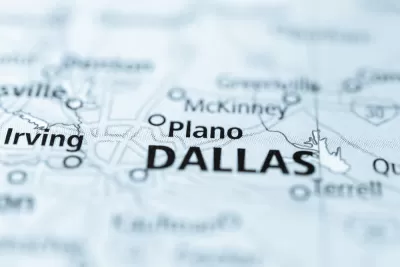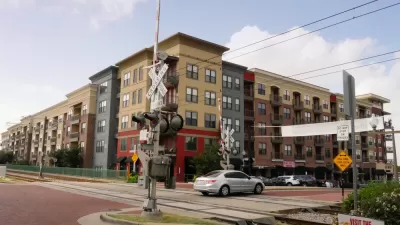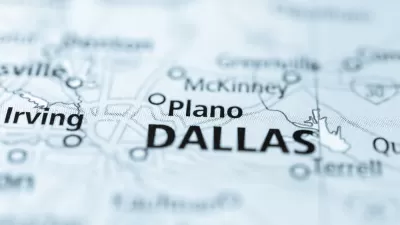Planners might have won a battle in city of Plano, but the war isn't over.

"A dispute over the Plano Tomorrow comprehensive plan came to an end Sept. 19 with a district court ruling in the city’s favor," reports Liesbeth Powers.
"The summary judgment granted by Visiting Judge Henry Wade ends the City of Plano v. Carruth lawsuit, or “the Plano Tomorrow lawsuit,” which called into question whether or not the city secretary is obligated to submit a petition for a referendum on the city’s comprehensive plan to Plano City Council," according to Powers.
Over the summer the city looked ready to repeal the Plano Tomorrow Comprehensive Plan to appease the legal challenges, but the deal with groups behind the lawsuit fell apart quickly, according to Powers.
A Dallas Morning New editorial published after the judge's decision takes sides on the matter:
For various reasons, we're pleased that Plano’s vision for the future won this important legal victory. It is good that the court didn’t force Plano into a corner. Decisions about future growth are best handled by local elected officials and residents, and the ramifications would have reverberated across the state had the court injected itself deeper into the process.
The editorial also takes sides on larger questions about planning in Texas in the 21st century:
Cities, especially first-ring suburbs, must adapt to the times. Plano Tomorrow, the city’s master plan designed to promote sustainable housing and retail, attempts to accomplish that transition.
FULL STORY: Judge rules in favor of city in Plano Tomorrow lawsuit

Alabama: Trump Terminates Settlements for Black Communities Harmed By Raw Sewage
Trump deemed the landmark civil rights agreement “illegal DEI and environmental justice policy.”

Planetizen Federal Action Tracker
A weekly monitor of how Trump’s orders and actions are impacting planners and planning in America.

The 120 Year Old Tiny Home Villages That Sheltered San Francisco’s Earthquake Refugees
More than a century ago, San Francisco mobilized to house thousands of residents displaced by the 1906 earthquake. Could their strategy offer a model for the present?

In Both Crashes and Crime, Public Transportation is Far Safer than Driving
Contrary to popular assumptions, public transportation has far lower crash and crime rates than automobile travel. For safer communities, improve and encourage transit travel.

Report: Zoning Reforms Should Complement Nashville’s Ambitious Transit Plan
Without reform, restrictive zoning codes will limit the impact of the city’s planned transit expansion and could exclude some of the residents who depend on transit the most.

Judge Orders Release of Frozen IRA, IIJA Funding
The decision is a victory for environmental groups who charged that freezing funds for critical infrastructure and disaster response programs caused “real and irreparable harm” to communities.
Urban Design for Planners 1: Software Tools
This six-course series explores essential urban design concepts using open source software and equips planners with the tools they need to participate fully in the urban design process.
Planning for Universal Design
Learn the tools for implementing Universal Design in planning regulations.
Clanton & Associates, Inc.
Jessamine County Fiscal Court
Institute for Housing and Urban Development Studies (IHS)
City of Grandview
Harvard GSD Executive Education
Toledo-Lucas County Plan Commissions
Salt Lake City
NYU Wagner Graduate School of Public Service





























